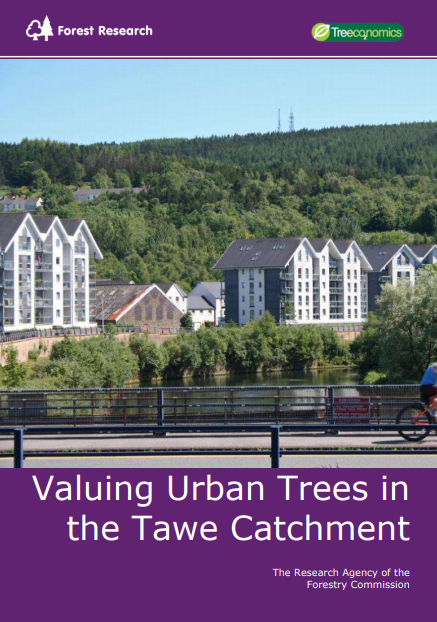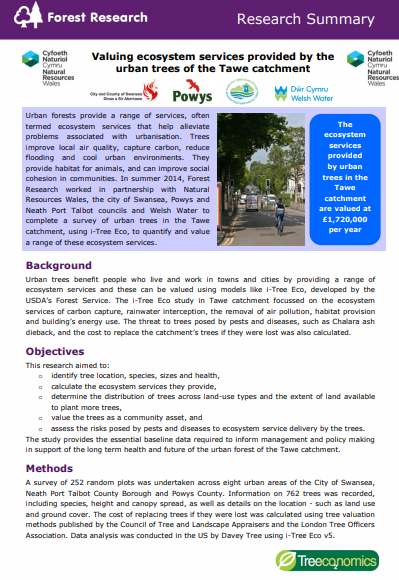Summary
About i-Tree Eco Tawe catchment
In order to better understand the natural capital of urban trees in the Tawe catchment and to value the services they provide, an i-Tree Eco survey was undertaken in the summer of 2014.
The ecosystem services provided by Tawe catchment’s urban trees and considered in this study were carbon capture, rainwater interception, and the removal of air pollution.
The work also determined the impact of trees on the energy use by buildings in the Tawe catchment, the public amenity value of the trees and the role of the trees and shrubs in providing habitat for insects.
This survey was completed by Forest Research’s Land Regeneration and Urban Greenspace Research Group, in partnership with Natural Resources Wales, Welsh Water, Powys County Council, Neath Port Talbot County Borough Council and City and County of Swansea Council.
This work was funded by Natural Resources Wales.
Research Objectives
This research aimed to:
- Understand Tawe catchment’s urban forest structure, including the species composition, diversity and tree condition
- Calculate the ecosystem services provided by Tawe catchment’s urban forest and rank the importance of different tree species
- Determine where more trees could be planted
Findings and Recommendations
Carbon capture, rainwater interception, and removal of air pollution by the Tawe catchment's urban trees were valued at £1,720,000 per year.
This study demonstrates the value that urban trees provide to all who live in, work in and visit Tawe catchment.
This research highlighted that tree diversity in Tawe catchment’s urban forest could be improved upon, to insure resilience against pests and diseases.
It also highlighted the importance of planning tree stocks; Tawe catchment has a low number of large diameter trees, which are essential to maintain a high level of ecosystem service delivery. Subsequently, a long-term strategy to conserve the current stock of young large stature trees is required to improve the overall age and size structure of Tawe catchment’s urban forest in the future.
For more information see the Full Report and the Summary Report available in the Documents section, below.
Downloads
Funding & Partners
- Natural Resources Wales
- Welsh Water
- Powys County Council
- Neath Port Talbot County Borough Council
- City and County of Swansea Council


